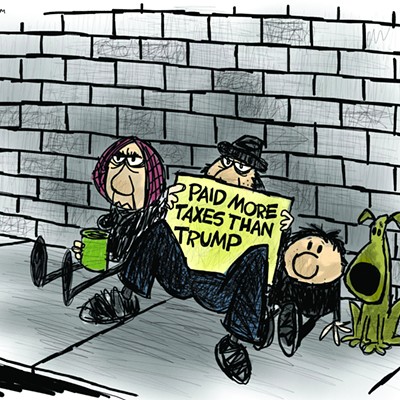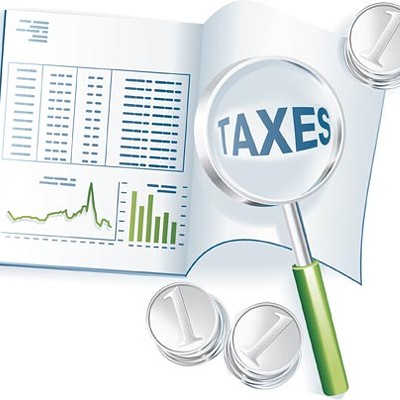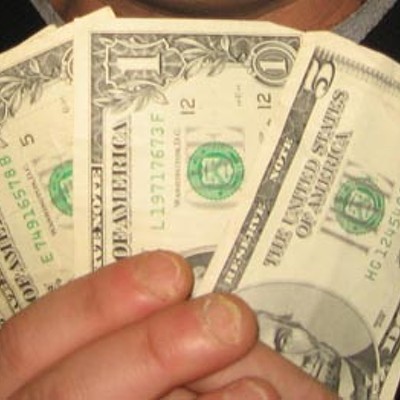Mayor Bob Walkup sees the gas tax as a popular idea that makes sense. Melanie Seacat, of the Pima Association of Governments, says the group's outreach programs show the public supports "user fees."
It's certainly a swell idea on paper: Let the people who use the roads pay at the pump for their upkeep and expansion. But the roadblocks for creating a gas tax make hiking the sales tax look like the proverbial Sunday drive in the country.
Get set for sticker shock: In order to raise the same amount of money as a half-cent sales tax, the gas tax would have to increase either 11 or 22 cents a gallon, according to Tim Ahrens, PAG's transportation finance manager.
As Ahrens sees it, the easiest way to increase the gas tax would be to persuade the Arizona Legislature to vote to increase it. But let's face facts: When getting the Legislature to increase taxes is the easiest way of doing something, you know it's an uphill climb.
Even if lawmakers were willing to consider an increase in the gas tax, it would be a political nightmare to hike it by the needed 22 cents per gallon. The huge hike would be needed because, under current state funding formulas, the state sucks up about half the revenue that comes from the gas tax to pay for state projects--i.e., the highway system that runs through Maricopa County, as well as ongoing work locally along Interstate 10 and Interstate 19.
Ahrens concedes the political hurdles are enormous. Ever since voters amended the Arizona Constitution to require support from two-thirds of lawmakers to raise taxes, finding a supermajority to support a tax hike has proved impossible.
A simple majority of lawmakers could conceivably put the matter on the ballot for voters statewide to approve, but what's the likelihood Arizona voters would embrace a gas tax hike of 22 cents? As Pima County Administrator Chuck Huckelberry points out, Maricopa County residents have already been paying a half-cent transportation sales tax for nearly two decades.
"So are they going to anxious to raise a statewide gas tax so we can raise money down here locally for our transportation improvements?" asks Huckelberry.
Then there's the idea of a regional gas tax. The good news: To raise the same amount of money, a regional gas tax limited to Pima County would only have to be 11 cents, since the state wouldn't be taking its cut, says Ahrens, who adds that any such tax should be indexed to inflation so it would continue to rise automatically.
The bad news: An 11-cent-per-gallon tax hike is still going to be hard for voters to swallow.
But let's say local voters would agree to raise the gas tax by more than a dime. Before you could even ask them to do that, you'd need to amend the Arizona Constitution to allow a regional gas tax--meaning voters across the state would have to approve Pima County's plan. "That would be a tough hurdle," says Ahrens.
If local officials managed to make all of that happen, Huckelberry says there's another problem: Right now, the gas tax is collected at a wholesale level, not at the pump. Creating a regional gas tax would require a new collection method, creating what Huckelberry calls an "administrative nightmare."
The barriers to implementing a gas tax makes a sales tax look a lot more feasible. But the two recent defeats may have poisoned the well for the foreseeable future.
As one local business lobbyist puts it, it could be five years or more before local officials can ask voters to approve another plan.
"You have to wait until the pain gets so bad that voters will approve it," he says.

















